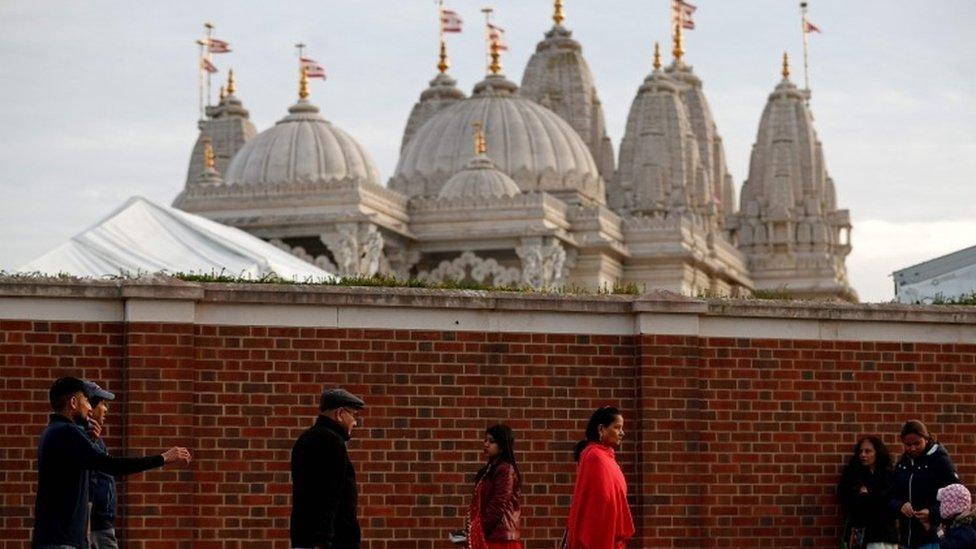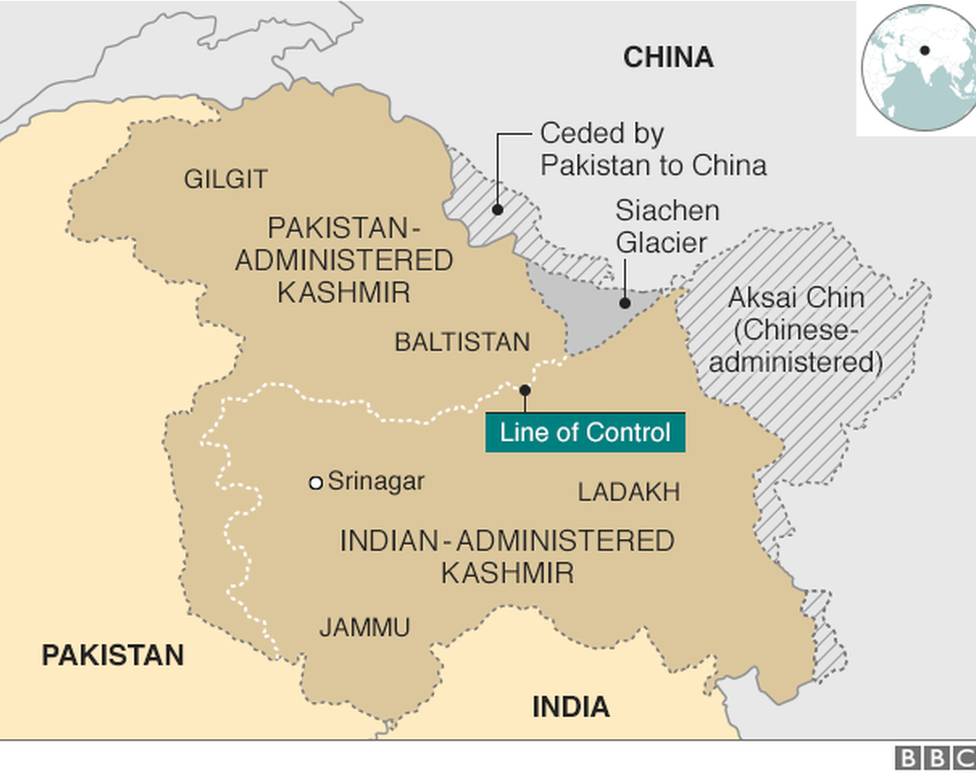General election 2019: Labour seeks to calm Hindu voters' anger
- Published

The Labour Party is attempting to defuse a row that has seen British Hindus urged not to vote for them at the general election.
There has been much anger from Hindu communities over Labour passing a motion criticising India's actions in Kashmir at its annual conference.
It has led to claims the party is "anti-Indian" and "anti-Hindu".
Labour has now distanced itself from the conference motion after criticism from a major Hindu charity.
For decades, Kashmir has been a point of contention between India and Pakistan - both believe it should be part of their country.
Over the summer, India withdrew the special status of Jammu and Kashmir that had enabled this region to make its own laws and have its own flag.
Following this, Labour members passed a motion at the party's conference in September saying there was a humanitarian crisis in the disputed territory and that the people of Kashmir should be given the right of self-determination.
This provoked much anger from Indians - most of whom are of Hindu faith - in the UK and abroad.
Umesh Chander Sharma, chairman of Hindu Council UK, told BBC Radio 4's Today programme most Hindus were "very upset and very angry" about Labour's position and the charity, which is meant to be politically impartial, was "against" it.
He said his organisation had to "defend the Hindu cause".
And he added that some people who usually vote Labour will be voting for the Conservatives because of the issue.
"They are, they are (voting Tory), they are very clear, they are very evident, there is no ifs or buts, they are very openly saying that," he told the Today programme.

The Times of India recently reported, external that the overseas friends of India's ruling party - the BJP - will be encouraging Hindus not to vote for Labour in marginal seats, which could make all the difference at 12 December's UK general election.
The Today programme has seen WhatsApp messages sent to Hindus across the country urging them to vote Conservatives.
One message reads, "The Labour Party has blindly supported Pakistan's propaganda against the issue of Article 370 in Kashmir. Labour Party is against India - the Conservative party isn't". These messages have come from members of Hindu organisations as well as individuals of Hindu and Indian heritage.
Tanmanjeet Singh Dhesi, Labour's candidate in Slough, recently urged people of Hindu and Sikh faith not to "fall for the divisive tactics of religious hardliners, trying to wedge apart our cohesive community, circulating lies on WhatsApp".
Now Labour Party chairman Ian Lavery has stepped in to reassure Hindus that the party is "fully aware of the sensitivities that exist over the situation in Kashmir".
"We recognise that the language used in the emergency motion has caused offence in some sections of the Indian diaspora, and in India itself," he said in a statement.
"We are adamant that the deeply felt and genuinely held differences on the issue of Kashmir must not be allowed to divide communities against each other here in the UK.

Labour Party chairman Ian Lavery has stepped in to reassure Hindus
He said the party's official position was that "Kashmir is a bilateral matter for India and Pakistan to resolve together by means of a peaceful solution which protects the human rights of the Kashmiri people and respects their right to have a say in their own future".
He added that Labour was "opposed to external interference in the political affairs of any other country" - and would "not adopt any anti-India or anti-Pakistan position over Kashmir".
According to official figures, there are more than a million Hindus in Great Britain, while there are more than three million Muslims.
Research by the Runnymede Trust, external shows that in 2015 and 2017, Labour remained the most popular party among ethnic minority voters (77% of them voted Labour in 2017).
The report says ethnic minority voters made up one in 5 of Labour voters but only one in 20 of Conservative voters.